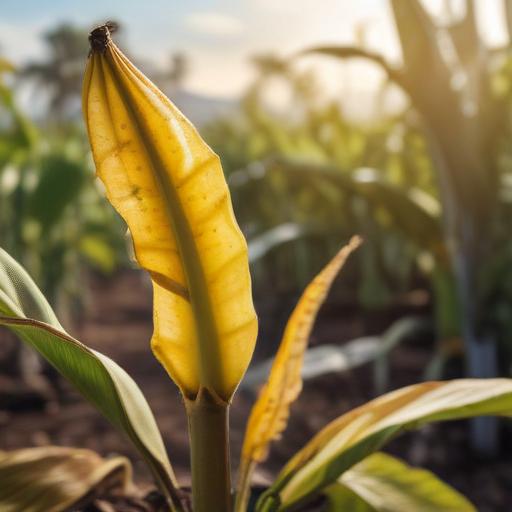A recent report highlights the escalating threat that climate change poses to banana cultivation globally. Analysis by Christian Aid, a well-known international development charity, indicates that rising temperatures and climate-related pests are jeopardizing banana production. The report reveals that nearly two-thirds of the optimal banana-growing areas in Latin America and the Caribbean, which account for approximately 80% of global banana exports, could be rendered unsuitable by 2080 due to climate impacts.
Bananas thrive within a temperature range of 15 to 35 degrees Celsius; however, they are particularly vulnerable to water shortages. These extreme weather fluctuations significantly hinder the plants’ ability to photosynthesize. Additionally, diseases like fusarium tropical race 4 have emerged as increasingly dangerous in recent years, leading to the devastation of numerous farms across the region.
Farmers from Latin America are bearing the brunt of these changes, with many reporting that their plantations are “dying,” which directly affects their income. Aurelia Pop Xo, a 53-year-old banana grower from Guatemala, lamented, “Climate change has been killing our crops. This means there is no income because we cannot sell anything.” She voiced her concerns about the early onset of these issues, emphasizing the need for better care for the environment for future generations.
In response to the findings, Christian Aid has urged developed nations to significantly cut their carbon emissions to mitigate the burgeoning effects of climate change. The organization is also advocating for international climate finance to assist banana growers and agricultural communities in adapting to shifting climatic conditions. Osai Ojigho, the director of policy and campaigns at Christian Aid, stressed the importance of bananas not only as a beloved fruit but also as a critical food source for millions, asserting that the livelihoods of those least responsible for the climate crisis are already at risk.
Moreover, there is a call to action for consumers and businesses to opt for Fairtrade certified bananas, ensuring that farmers receive fair compensation for their efforts.
This report serves as a wake-up call about the interconnectedness of climate health and agricultural sustainability. By addressing these challenges collaboratively and proactively, we can protect not only the future of banana cultivation but also the livelihoods that depend on it.
